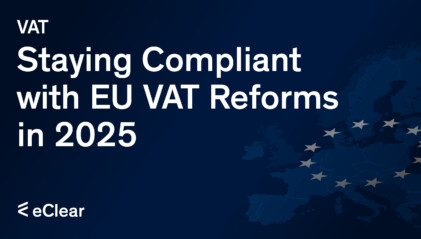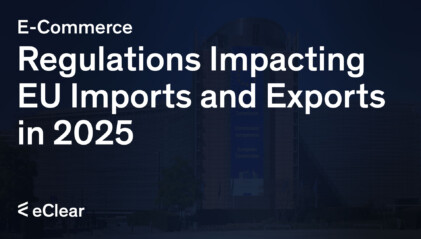According to a study by ibi research and logistic-natives e.V., online merchants are ambivalent about the benefits of the EU e-commerce package.
On 1 July 2021, the largest ever VAT reform for EU-wide online trade came into force. ibi research at the University of Regensburg, together with logistic-natives e. V., has analysed in a study how German online merchants are coping with the new regulations. The result was a split opinion: while the majority of respondents saw neither advantages nor disadvantages, others criticised the complexity and administrative burden on the one hand, but praised the simplified compliance on the other.
The study
46% of respondents say they do not do business abroad due to legal uncertainty when selling to foreign customers.
Almost one third of the online merchants surveyed are aware of the provisions of the EU-wide VAT reform. Four out of ten companies already use the simplified VAT return with OSS. Only one in ten, on the other hand, transacts sales via IOSS. To the question “Did you experience IT problems during the transition to OSS/IOSS?”, 24% of respondents answered “Yes”.
“The EU e-commerce package should simplify VAT processing in online trade and ensure fairness on an international level. However, many merchants are currently struggling with implementation problems,” reports ibi Managing Director Dr Georg Wittmann. Just under a quarter of the respondents stated that they had encountered technical difficulties when switching to OSS or IOSS, for example due to a lack of interfaces. “Nevertheless, there are also positive voices that emphasise, for example, the simplified compliance or the forward-looking thinking of the EU,” Wittmann continues.
Challenges
Andreas Weidner, VP Customs Compliance at eClear AG, reported on the topics of OSS and IOSS as well as the challenges after Brexit. The changes have a significant impact on logistics and the cost structure of the goods to be cleared.
Experiences
One-Stop-Shop (OSS)
Many merchants perceive the new process as a simplification. The reasons for this are the largely completed harmonisation in the EU, the simplified quarterly reporting, as there is no longer any monitoring of the delivery thresholds. The use of OSS with Amazon (exclusion when using warehouses) and the fundamentally difficult determination of the correct tax rate were stated as problematic. Shop operators would still often work with the local standard rates.
Import-One-Stop-Shop (IOSS)
As with the OSS, the procedure simplifies many things, but is not usable for all online merchants. The IOSS legislation only applies to online mail order sellers (online remote sellers) who sell goods imported from a third country with a material value of up to €150 per consignment to buyers within the EU who are not subject to VAT, and online marketplaces (“electronic interfaces”) that assist an online mail order seller in selling goods imported from outside the EU.
Brexit
Many merchants have stopped selling to the UK because the UK is now a third country, logistics costs are high and returns processing is too complicated.
Logistics
Here, there was a shift in shipment volumes away from postal service providers to alternative logistics service providers, as more and more providers with country-specific, individual cross-border solutions are on the market. Furthermore, unclear cost structures arose in customs clearance.







